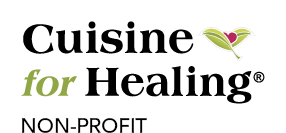
Eggs have long been a controversial subject but trust me- they can be very good for you!
The chicken or the egg, which came first? That is a much debated subject that we will leave for others to contemplate. What I can verify is that eggs have gotten a bad rap in the past as culprits that cause bad cholesterol. Just not true! Bad cholesterol is caused by processed food that create trans-fat in our bodies. Real whole food from sustainable sources is something body knows what to do with and very much needs.
Here is why you should keep eggs in your diet according to Dr Axe:
- Reduce Risk of Heart Disease
Eggs can help keep your heart beating healthier and longer. One of the most exciting health benefits of eggs is their ability to reduce your risk of heart disease and improve cardiovascular function. A comprehensive study released in 2015 discussed the assumption many people across the world have that the fat content in eggs is actually dangerous to those at risk for heart disease or who have diabetes. However, consuming the right kinds of eggs proved to beneficial across the board, regardless of pre-existing conditions. (2) One reason (some) eggs are such a heart-healthy food option is due to the presence of omega-3 fatty acids. Free-range eggs (taken from hens raised on a pasture, rather than in battery cages) have double the amount of omega-3s than cage-raised eggs. They also have more of the good stuff and less of the bad stuff than cage-raised eggs, but more on that later.
- May Help Prevent Disease
Heart disease isn’t the only common illness that an egg-rich diet can hel prevent. Have you ever heard of metabolic syndrome? It’s a cluster of conditions that all increase your likelihood of several types of disease. Conditions included in metabolic syndrome include increased blood sugar levels, excess body fat (especially around the waist) and abnormal cholesterol levels. Any one of these conditions increases your risk of heart disease, stroke and diabetes. Unfortunately, a guideline for egg consumption has been seen as a very confusing subject for the last several decades. Misinformation and other factors have led to a common recommendation to limit the number of eggs you eat each week to no more than three. The good news? A wealth of current research and rise in general public awareness have contributed to a better understanding of eggs and how they benefit the body. In addition to their effect on metabolic syndrome, eggs also contain naturally occurring carotenoids.
- Improve Eye Health
Carotenoids aren’t only beneficial for overall health and disease prevention. They also benefit your eye health. Two “oxygenated” carotenoids that are especially important for your eyes are lutein and zeaxanthin. These two nutrients are found in various places in the body, but they’re the only two of 600 total carotenoids that exist in the eyes — and their concentration is higher there than anywhere else in the body. (8) They function in maintaining eye health by filtering out dangerous high-energy blue spectrums of light and acting as both antioxidants and anti-inflammatories. (9) The silent blue light filtering that lutein and zeaxanthin perform in your eyes reduces the chances that you’ll develop many common eye diseases, like macular degeneration and glaucoma. (10)
- Aid in Weight Loss
Many people are familiar with the role of eggs in a protein-rich diet that’s especially significant for athletes and those who work out regularly. Do you know one reason, other than protein, that eggs are a great food for people who want to lose weight? Interestingly, it’s because of lutein! Although lutein is famous primarily for its role in eye and skin health, a recent study has determined that lutein also may positively impact a person’s physical activity level.
- Maintain Liver Function and Brain Health
Choline is a macronutrient that our bodies produce in very small amounts, but we mostly need to get it from our food. Eggs are a choline-rich food choice, which means they greatly assist in liver function and brain development, among other features. There is research to indicate choline deficiency is also linked to some types of cancers. (13) In proper amounts, choline has also been found to treat some neurological issues, such as depression, and improve memory and cognitive function. (14)
- Maintains Healthy Skin
Eggs contain five of the eight best nutrients that help you to fight and reduce your risk of skin cancer. If you have a risk for skin cancer, eggs can be one of the weapons you use to prevent it happening to you.
All Eggs Are Not Created Equal
The trickiest part about getting the maximum health benefits of eggs in every serving is to get the right kind of egg. It may seem easier sometimes to just pick up the first carton of eggs you come across. However, the conditions in which hens are raised to lay eggs drastically affects not only the nutritional content of the eggs, but also the risk of consuming dangerous bacteria, such as salmonella.
Here’s the lowdown: You can buy eggs laid by free-range hens (allowed to roam, wander, perch and have a good quality of life), or by cage-raised hens (unable to move or engage in normal activity). Caged hens can’t lie down, stand up, groom themselves or flap their wings. They’re held in cages averaging about 67 square inches of space and usually surrounded by manure pits and infestations of maggots, flies and other insects carrying disease.
Time and time again, the differences between cage-raised and free-range eggs have been apparent. They have proven to have more vitamin, minerals and less fat and cholesterol than cage raised birds. Not only do these eggs clearly win in the nutrition category, but free-range eggs are 98 percent less likely to carry salmonella! It’s no surprise, considering how cage-raised hens are expected to live. The disgusting reality of cage-raised hens includes frequent cannibalism, molting and plucking one another. Unhappy, unhealthy hens, are exposed to salmonella, antibiotics and fed “slaughterhouse waste” — meaning animals who have died in slaughterhouses due to disease or being crippled. That waste can include anything from meat to blood to fecal matter. Food also carries a vibration and animals raised in horrific conditions carry negative vibrations we absorb. We, as the most intelligent life on this planet, have an moral obligation to preserve life in an ethical way.
These are serious risks we’re looking at here! If you’re anything like me, none of the things I just mentioned are things you want to expose your family to in food. Do yourself a favor — commit now to buying only free-range eggs. Your body and your health will be better for it.
Happy Healthy eating! Dana









